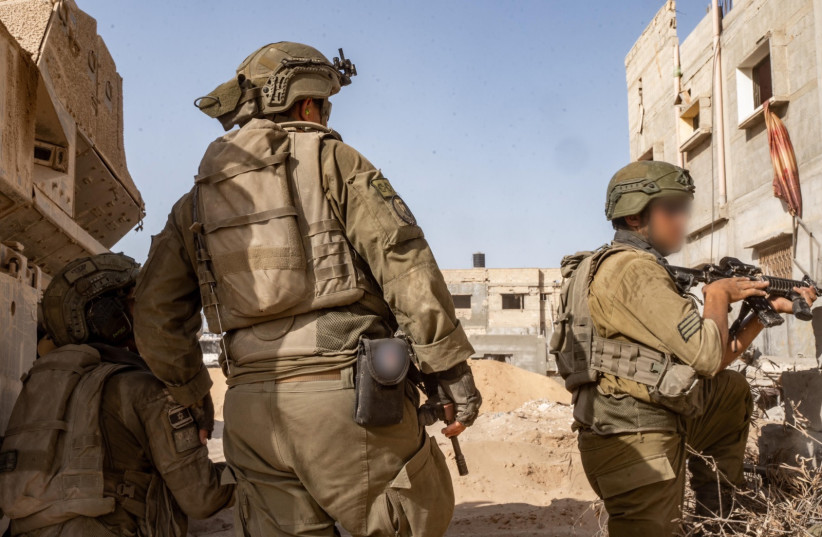For the past eight months, Maj. Eitan Mord has been fighting on unfamiliar ground. As a steadfast figure in the 271st Battalion combat team, a crucial part of the Givati Brigade, he bears the toll of navigating military operations in Gaza and his family.
Upon making aliyah from New York in 2010, Mord enlisted as a combat medic approximately three months after arriving. In his reserve duty, his role involves monitoring medical operations for the combat team, with real-time reports from the field. Mord’s service was not limited to his initial enlistment period; he was recently called up twice for reserve duty, on October 7.
“Since the outbreak of the conflict, I have not returned to New York,” he told the Post. “My connections in New York primarily come from the Modern Orthodox community, where there is generally strong support for Israel.”
The war has had a challenging impact on maintaining relationships with loved ones. Mord not only carries the weight of the war but also the safety of his family. "I face life-or-death situations every day," Mord told the Post.
“My family’s reaction has been really supportive. Obviously, they are also nervous. But they know what’s important to me and my country.” He adds, “I have three children. My oldest one understands some of what’s going on, but not fully. We share information that’s important for him to know.”

Reflecting on his recent call-up to reserve duty on October 7, Mord recounts the anticipation that preceded his deployment. “They let us know there was a good chance we’d be called,” he explains. “I kept my phone on during Shabbat, expecting the call. By Saturday night we were told to report the next morning.”
Maintaining resilience amid international perception
In the immediate aftermath of October 7, Israel garnered international sympathy, but the perceived escalating humanitarian crisis in Gaza has presented challenges regarding international support. As global tensions escalated, pressure intensified for Israel’s reputation with high-profile names referring to the Israeli military with pejorative terms such as the IOF (Israel occupation forces or Israel offensive forces instead of the Israel Defense Forces, known as IDF), or the United Nations’ recently published Children in Armed Conflict report, which added the Israeli military next to terrorist groups like Hamas and Islamic Jihad. With Western nations reexamining their support for the IDF, he revealed that this has left a burnout felt by Mord and other reservists.
“I am familiar with these terms,” Mord reflected, acknowledging the negative portrayal of the IDF across international media. “It’s really sad for me to hear that.” He has diligently followed the coverage, which from his point of view lacks context, painting a one-dimensional picture that fails to capture the nuances of the war. Despite the attention from international media, Mord emphasized his commitment to Israel and the support he has received from his brigade: “On my first day with the Givati, I found myself in the main command center with my fellow soldiers. One of them took the time to sit with me for an hour, giving me a thorough briefing, answering my questions, and ensuring I understood what I needed to know.”
Regarding whether the IDF has upheld its principle of protecting all lives amid the conflict, Mord couldn’t delve into specifics: “There are limitations on what we can disclose. Generally, I can say our operations prioritize minimizing casualties with precise intelligence.”
